#Brian Reeder
Text
The 90's Played Videotapes by a Different Set of EVIL Rules. "V/H/S/94" reviewed! (Acorn Media International / Blu-ray)
V/H/S/94 Blu-ray Can be Purchased Here!
A police S.W.A.T. team raid a large warehouse where suspected drug storage and trafficking is being conducted. Tagging along a camera man for code of conduct review, what the team discovers inside is more alarming than a stash of street narcotics. The nearly empty warehouse is filled with gruesomely recorded VHS tapes, snowy television sets in every…

View On WordPress
#1990s#Acorn Media International#Anna Hopkins#Anthony Christian Potenza#Bad Dreams#blu-ray#Body horror#Brad Miska#Brenand McMurtry-Howlett#Brian Paul#Budi Ross#Cameron Kneteman#Chloe Okunols#Christian Lloyd#Cinepocalypse#Conor Sweeney#cult#Daniel Willston#David Bruckner#Devin Chin-Cheong#Donny Alamsyah#Dru Viergever#Hanger 18 Media#Holy Hell#horror#Jennifer Reeder#Josh Goldbloom#Juan Blone Subiantoro#Kevin P. Gabel#Kimmy Choi
0 notes
Text










Chicago
Directed and Chroeographed by Marc Robin
Fulton Theatre, 2019
(Photos by Kinective)
#Chicago#chicago the musical#jessica lee goldyn#heather parcells#travis taylor#tara connor jones#randal fizrado#joey abramowicz#deshawn bowens#samantha hewes cramer#mallory davis#alex drost#christian jesus galvis#julia harnett#d hoffer#brian martin#janayé mcalpine#kayla moniz#kaylee olson#buddy reeder#sean rozanski#tiffany rudi#zoë verbil#blake zeleskinar
1 note
·
View note
Note
id really like to learn more about chicken genetics, are there any books you can recommend
Brian Reeder's introduction to color forms of the Domestic Fowl
Pros- helps you break down the names of color varieties into their actual genetics. Book itself is very affordable.
Cons- no pictures :(
Sigrid Van Dort's Chicken Colors
Pros- Lots of pictures and credible references
Cons- English is not the authors first language so sometimes sentences can be worded a bit confusing, expensive
Sigrid also has a genetics book on chicken extremes which is more so about body modifications like the genetics of feathered legs and dwarfism. It's really neat on its own even if you don't care about genetics.
Honestly those are a good starting point but get your hands on any book you can. Your library might even have some chicken books. Even stuff that is outdated can have other interesting information
17 notes
·
View notes
Text

Elton John with Emmylou Harris and Husband Brian Ahearn on right by Dan Reeder
25 notes
·
View notes
Note
Can you recommend a few new books/series for me to read? My favorite genre is fantasy but I also like good fictional, good renaissance/Edwardian fiction and good scifi. > I like stuff written by Brian Jacques, Diana Wynn Jones, Patricia McKillip, Tolkien, Lewis, some Jonathan Stroudt, Timmothy Zahn ( I love his star wars books <3) and a lot of other stuff, but those are my big authors. Got any ideas for me? (for fiction I like things like Gary Scmitd, Jean Little, and Georgette Heyer) You can also just shoot off some stuff you like it doesn't have to be related to my list.
Thanks for your time!
I can give it a try. I'm not too familiar with some of the authors, but since many of them are authors I also love, I feel relatively confident just recommending certain books within the categories that I like, and trusting that you can vet which ones appeal to you.
Fantasy
Creatures of Light trilogy (Woodwalker, Ashes to Fire, Creatures of Light) by Emily B. Martin: Non-magical adventure/political fantasy set in a world inspired by North American environments. Excellent characters and amazing setting.
Galleries of Stone trilogy (Meadowsweet, Harrow, Rakefang) by C.J. Milbrandt: Children's fantasy series about a sculptor who makes magical statues, the boy hired as his servant to make sure he remembers to do things like eat and bathe, and the family and community they build around them. Excellent small-scale domestic fantasy that I feel like would hit some of the homier Redwall vibes (especially since the races in this world have animal features). Writing's a bit rough--you will go nuts over her use of epithets--but I love it with all my heart, and I need someone to join the 5.7 of us who are in the fandom.
The Emperor's Soul by Brandon Sanderson: Novella about a prisoner who uses a stamp-based magical system to rewrite identities. Much shorter than Sanderson's usual work, with a solid plot and characters and (of course) worldbuilding, plus some fascinating discussions about art and identity.
City of Masks by Mike Reeves-McMillan: The last book I finished, and very much enjoyed. Set in a roughly Renaissance-ish city where everyone must wear masks and follow the rules of behavior for the characters assigned to those masks. Follows a diplomat sent to the city who has to learn the Byzantine rules of identity while helping to find a killer and stop an assassination attempt. Very old-fashioned writing style, but I think it really enhances the work. Worldbuilding is complicated, and I'm not sure it totally holds together, but you really do feel like you're exploring a whole new culture, and there are some excellent twists.
Brine and Bone by Kate Stradling: Novella-length Little Mermaid retelling from the POV of the "other woman" that actually follows the original story. Excellent romance and magic system, beautiful story. One of my top favorite retellings.
The Heir and the Spare by Kate Stradling: Non-magical, political-focused fantasy about a princess who finds out the man who tormented her at boarding school is about to marry her psychopathic older sister. Feels a bit underdeveloped, and some of the ending reveals are a bit over-the-top, but it's very easy to read, with some interesting dynamics. I liked it even more on reread.
The Electrical Menagerie by Mollie E. Reeder: Easily one of the best indie fantasies I've read. Set in a stardust-powered steampunk-ish Edwardian universe where islands in space are linked by trains. Follows an idealistic, shy middle-aged stage magician and his shrewder, more worldly twenty-something manager, who enter a competition hoping to save their show, but get caught up in intrigue that puts them in danger while strengthening their friendship.
A Spy in the Silver Palace by Jordan Rivet: In a world where people are commonly born with one of four superpowers, a shapeshifter gets assigned to be decoy for the princess and gets caught up in intrigue. Actually a three-book series, and I don't much like some things in the last half of it, but it totally captures that midlist adventure fantasy vibe that you don't often get from books these days.
The Glamourist Histories by Mary Robinette Kowal: If you like fantasy and you like Regency, these are the books for you. The first one, Shades of Milk and Honey is a Jane Austen book with magic, and the others branch out into other genres, with my favorite being the fourth book (Valour and Vanity), which is a magical Regency heist. (Bonus points: Each book has a stealth cameo from one of the Doctors from Doctor Who)
Science Fiction
Revenge of the Sith novelization by Matthew Stover: If you like Star Wars stories and somehow haven't read this one yet, I'm begging you to do so. Easily the best thing to come out of the prequels. It manages to make the character arcs of the prequel make sense, while providing beautiful writing that will tear your heart out.
Ahab by E.B. Dawson: Moby Dick in space, where they hunt down murderous AI-driven spaceships. Fascinating worldbuilding and good characters.
Arabella of Mars and Arabella and the Battle of Venus by David Levine: Alternate-history science fiction where Regency-era sailing ships fly to colonies on Mars and Venus. I prefer the second book, but they're both fun adventures. (Bonus: taking a page from Mary Robinette Kowal, the second book has a Ninth Doctor cameo).
Master of Formalities by Scott Meyer: P.G. Wodehouse in space. Been a while since I read this, but I remember it being as funny as the concept suggests.
Edwardian Classic/Historical
Beau Brown by Nina Clare: If you love Georgette Heyer, please read this. Closest thing I've ever read to her work that wasn't by her. About an aristocrat who escapes the French Revolution, becomes a tailor, and winds up going to London to be personal dresser for a wealthy but vulgar family. Funny and sweet, with some great characters.
Sanditon by Jane Austen and Another Lady (Marie Dobbs): Completes the story from Jane Austen's last unfinished novel. It's like this book has a dial with two settings: Austen and Heyer. It's starts totally Austen and gets more and more Heyer as the book goes on, until it cranks the Heyer up to eleven. In a rare move for Austen fanfic, I feel like the hero and heroine can stand beside Austen's originals.
Psmith series (Mike and Psmith, Psmith in the City, Psmith Journalist, and Leave It to Psmith) by P.G. Wodehouse: Edwardian series about one of the most interesting trickster characters in fiction. Not as polished as Wodehouse's later work, but has an actual character arc from Psmith. First book has a lot of cricket, so you may want to start with the last book, which is more like Wodehouse's usual work, to decide if you're interested in the characters before digging deeper.
16 notes
·
View notes
Text
My 2023 Reading List
Here's the books and articles that I read in 2023 (a large part of which was a push to finish my dissertation). I thought it might also be useful to others to see what my workload looks like as a 7th year grad student in a PhD. program, especially since I'm unmedicated with severe ADHD. This is what I'm able to get done while fighting through that. I bring this up because I know that it can seem fucking impossible, most notably when we see our neurotypical colleagues churning through incredible amounts of research. A final note: two of the books I'm including in here are books that I started reading in 2022 (Kagan and Stock). Also, note that many of these are re-reads; I've marked these with an Asterisk, and a couple of the books I read around 90%, but dropped a couple chapters that weren't relevant for my projects. These are marked with two asterisks. Be aware that my citations here are of a pretty rough and ready style. Philosophy has weird disciplinary standards (read, almost every journal is different), so I just have a "here's what you need to know to find it" style here.
CW: I work on some dark things involving death, suicide, sexual assault, sex, race, and trans rights, including actively fighting trans-exclusive theorists, so there's a lot of possibly triggering things in here.
Updated: Jan 4, 2024
Abdollah, Serajian, Ebrahim Khosrow, and Sajad Ahmadizad. 2014. “Comparison of Anthropometric and Functional Characteristics of Elite Male Iranian Fencers in Three Weapons.” International Journal of Applied Sport Sciences 26 (1): 11–17.
Alcoff, Linda. 1991. “The Problem of Speaking for Others.” Cultural Critique No. 20 5–32.
Alcoff, Linda. 2007. “Epistemologies of Ignorance: Three Types.” In Race and Epistemologies of Ignorance, edited by Shannon and Tuana Sullivan, Nancy, 39–50. Albany: State University of New York Press.
Anderson, Elizabeth. 2012. “Epistemic Justice as a Virtue of Social Institutions.” Social Epistemology 26 (2): 163–73.
Andler, Matthew. 2017. “Gender Identity and Exclusion: A Reply to Jenkins.” Ethics
Ashley, Florence. 2023. “What is it Like to Have a Gender Identity.” Mind 132 (528): 1053–73.
Ballantyne, Nathan. 2019. “Epistemic Trespassing.” Mind 128 (510): 367–95.
Ballantyne, Nathan, Jared Celniker, and David Dunning. 2022. “Do Your Own Research.” Social Epistemology
Barnett, Brian S, Ariana E Nesbit, and Reneé M Sorrentino. 2018. “The Transgender Bathroom Debate At the Intersection of Politics, Law, Ethics, and Science.” J Am Acad Psychiatry Law 46 (2): 232–41.*
Berg, Amy. 2022. “Is There a Duty to Read the News.” Journal of Moral Philosophy 20 (3-4): 243–67.
Bergero-Miguel, Trinidad, María A García-Encinas, Amelia Villena-Jimena, Lucía Pérez-Costillas, Nicolás Sánchez-Álvarez, Yolanda de Diego-Otero, and Jose Guzman-Parra. 2016. “Gender Dysphoria and Social Anxiety: An Exploratory Study in Spain.” J Sex Med 13 (8): 1270–78.*
Bettcher, Talia Mae. 2009. “Trans Identities and First-Person Authority.” In You’Ve Changed: Sex Reassignment and Personal Identity, edited by Laurie Shrage, 98–120. Oxford University Press.*
Biggs, Michael. Suicide By Trans-Identified Children in England and Wales. Transgender Trend.*
Blair, Karen L., and Rhea Ashley Hoskin. 2019. “Transgender Exclusion From the World of Dating: Patterns of Acceptance and Rejection of Hypothetical Trans Dating Partners as a Function of Sexual and Gender Identity.” Journal of Social and Personal Relationships 36 (7): 2074–95.
Blanchard, Matt, and Barry Farber. 2016. “Lying in Psychotherapy: Why and What Clients Don’t Tell Their Therapist About Therapy and Their Relationship.” Counselling Psychology Quarterly 29 (1): 90–112.
Blanchard, Matt, and Barry Farber. 2020. “”It is Never Okay to Talk About Suicide”: Patients’ Reasons for Concealing Suicidal Ideation in Psychotherapy.” Psychother Res 30 (1): 124–36.
Bochicchio, Lauren, Kelsey Reeder, Lauren Aronson, Charles McTavish, and Ana Stefancic. 2021. “Understanding Factors Associated With Suicidality Among Transgender and Gender-Diverse Identified Youth.” LGBT Health 8 (4): 245–53.
Bradley, Ben. 2012. “Doing Away With Harm.” Philosophy and Phenomenological Research 85, No. 2 390–412.*
Brown, Brookes. 2023. “Bearing Witness: The Duty of Non‐indifference and the Case for Reading the News.” Pacific Philosophical Quarterly 104 (2): 368–91.
Bustos, Valeria P, Samyd S Bustos, Andres Mascaro, Gabriel Del Corral, Antonio J Forte, Pedro Ciudad, Esther A Kim, Howard N Langstein, and Oscar J Manrique. 2021. “Regret After Gender-Affirmation Surgery: A Systematic Review and Meta-Analysis of Prevalence.” Plast Reconstr Surg Glob Open 9 (3): e3477.*
Byrne, Alex. 2020. “Are Women Adult Human Females.” Philosophical Studies 177 (12): 3783–803.
Carel, Havi, and Ian Kidd. 2014. “Epistemic Injustice in Healthcare: A Philosophical Analysis.” Med Health Care Philos 17 (4): 529–40.
Cattien, Jana. 2019. “Against “Transracialism”: Revisiting the Debate.” Hypatia 34 (4): 713–35.
Clements-Nolle, Kristen, Rani Marx, and Mitchell Katz. 2006. “Attempted Suicide Among Transgender Persons: The Influence of Gender-Based Discrimination and Victimization.” Journal of Homosexuality 51 (3): 53–69.*
Congdon, Matthew. 2018. ““Knower” as an Ethical Concept: From Epistemic Agency to Mutual Recognition.” Feminist Philosophy Quarterly 4 (4):
Costa, Rosalia, and Marco Colizzi. 2016. “The Effect of Cross-Sex Hormonal Treatment on Gender Dysphoria Individuals’ Mental Health: A Systematic Review.” Neuropsychiatr Dis Treat 12 1953–66.*
Crichton, Carel, & Kidd. 2017. Epistemic Injustice in Psychiatry. BJPsych Bulletin. 41:65-70.
Crocker, David. 1991. “Insiders and Outsiders in International Development.” Ethics and International Affairs 5 149–73.
Cullison, Andrew. 2010. “On the Nature of Testimony.” Episteme
Daniels, Norman. 2015. “Why We Should Care About the Social Determinants of Health.” Am J Bioeth 15 (3): 37–38.
Davey, Amanda, Walter Pierre Bouman, Caroline Meyer, and Jon Arcelus. 2015. “Interpersonal Functioning Among Treatment-Seeking Trans Individuals.” J Clin Psychol 71 (12): 1173–85.*
Davey, Amanda, Walter Pierre Bouman, Jon Arcelus, and Caroline Meyer. 2014. “Social Support and Psychological Well-Being in Gender Dysphoria: A Comparison of Patients With Matched Controls.” J Sex Med 11 (12): 2976–85.*
Davis, Emmalon. 2016. “Typecasts, Tokens, and Spokespersons: A Case for Credibility Excess as Testimonial Injustice.” Hypatia 31 (3): 485–501.
Dees, Richard H. 2019. “Primum Non Nocere Mortuis: Bioethics and the Lives of the Dead.” Journal of Medicine and Philosophy 44 (6): 732–55.
Dembroff, Robin. 2020. “Beyond Binary: Genderqueer as Critical Gender Kind.” Philosophers’ Imprint 20 (9): 1–23.*
Dembroff, Robin, and Dennis Whitcomb. Forthcoming. “Content-Focused Epistemic Injustice.” Oxford Studies in Epistemology*
DiPaolo, Joshua. 2022. “What’s Wrong With Epistemic Trespassing.” Philosophical Studies 179 (1): 223–43.
DiPaolo, Joshua. Forthcoming. “”I’m, Like, a Very Smart Person” on Self-Licensing and Perils of Reflection.” Oxford Studies in Epistemology
Dormandy, Katherine. 2018. “Epistemic Authority: Preemption or Proper Basing.” Erkenntnis 83 (4): 773–91.
Dotson, Kristie. 2008. “In Search of Tanzania: Are Effective Epistemic Practices Sufficient for Just Epistemic Practices?” Southern Journal of Philosophy 46 (S1): 52–64.*
Dotson, Kristie. 2011. “Tracking Epistemic Violence, Tracking Practices of Silencing.” Hypatia 26 (2): 236–57.*
Dotson, Kristie. 2012. “A Cautionary Tale: On Limiting Epistemic Oppression.” Frontiers: A Journal of Women Studies 33 (1): 24–47.*
Dotson, Kristie. 2014. “Conceptualizing Epistemic Oppression.” Social Epistemology 28 (2): 115–38.*
Frost-Arnold, Karen. 2014a. “Imposters, Tricksters, and Trustworthiness as an Epistemic Virtue.” Hypatia 29 (4): 790–807.
Frost-Arnold, Karen. 2014b. “The Cognitive Attitude of Rational Trust.” Synthese 191 (9): 1957–74.
Frost-Arnold, Karen. 2014c. “Trustworthiness and Truth: The Epistemic Pitfalls of Internet Accountability.” Episteme 11 (1): 63–81.
Funkhouser, Eric. 2017. “Beliefs as Signals: A New Function for Belief.” Philosophical Psychology 30 (6): 809–31.
Gardner, Molly. 2015. “A Harm-Based Solution to the Non-Identity Problem.” Ergo 2 427–44.*
Gardner, Molly. 2019. “When Good Things Happen to Harmed People.” Ethical Theory and Moral Practice 22 (4): 893–908.
Gijs, Luk, and Anne Brewaeys. 2007. “Surgical Treatment of Gender Dysphoria in Adults and Adolescents: Recent Developments, Effectiveness, and Challenges.” Annual Review of Sex Research 18 (1): 178–224.*
Goldman, Alvin I. 2001. “Experts: Which Ones Should You Trust.” Philosophy and Phenomenological Research 63 (1): 85–110.
Harcourt, Edward. 2021. “Epistemic Injustice, Children and Mental Illness.” J Med Ethics 47 (11): 729–35.
Hardwig, John. 1985. “Epistemic Dependence.” The Journal of Philosophy 82 (7): 335–49.
Harvin, Cassandra Byers. 1996. “Conversations I Can’t Have.” One the Issues: The Progressive Women’s Quartery 5 (2): 15–16.
Hookway, Christopher. 2010. “Some Varieties of Epistemic Injustice: Reflections on Fricker.” Episteme 7 (2): 151–63.
Intemann, Kristen. 2010. “25 Years of Feminist Empiricism and Standpoint Theory: Where Are We Now.” Hypatia 25 (4): 778–96.
Jaggar, Alison M. 1998. “Globalizing Feminist Ethics.” Hypatia 13 (2): 7–31.
Jenkins, Katharine. 2016. “Amelioration and Inclusion: Gender Identity and the Concept of Woman.” Ethics 126 (2): 394–421.*
Jenkins, Katharine. 2018. “Toward an Account of Gender Identity.” Ergo, an Open Access Journal of Philosophy 5 (20201214):
Jenness, Valerie, Cheryl L. Maxson, Kristy N Matsuda, and Jennifer Macy Sumner. 2007. “Violence in California Correctional Facilities: An Empirical Examination of Sexual Assault.” The Bulletin 2 (2): 1–4.
Joshi, Hrishikesh. 2022a. “Debunking Creedal Beliefs.” Synthese 200 (6):
Joshi, Hrishikesh. 2022b. “The Epistemic Significance of Social Pressure.” Canadian Journal of Philosophy 52 (4): 396–410.
Kaltial-Heino, Rittakerttu, Maria Sumia, Marja Työläjärvi, and Nina Lindberg. 2015. “Two Years of Gender Identity Service for Minors: Overrepresentation of Natal Girls With Severe Problems in Adolescent Development.” Child and Adolescent Psychiatry and Mental Health 9 (9): *
Kidd, Ian James, Lucienne Spencer, and Havi Carel. 2023. “Epistemic Injustice in Psychiatric Research and Practice.” Philosophical Psychology 1–29.
Kukla, Rebecca. 2007. “Objectivity and Perspective in Empirical Knowledge.” Episteme 3 (1-2): 80–95.
Kurs, Rena, and Alexander Grinshpoon. 2018. “Vulnerability of Individuals With Mental Disorders to Epistemic Injustice in Both Clinical and Social Domains.” Ethics & Behavior 28 (4): 336–46.
Larbalestier, Jan. 1990. “The Politics of Representation: Australian Aboriginal Women and Feminism.” Anthropological Forum 6 (2): 143–57.
Lee, J. Y. 2021. “Anticipatory Epistemic Injustice.” Social Epistemology 35 (6): 564–76.
Levy, Andrea, Aaron Scherer, Brian Zikmund-Fisher, Knoll Larkin, Geoffrey Barnes, and Angela Fagerlin. 2018. “Prevalence of and Factors Associated With Patient Nondisclosure of Medically Relevant Information to Clinicians.” JAMA Netw Open 1 (7): e185293.
Lin, Eden. 2021. “The Experience Requirement on Well-Being.” Philosophical Studies 178 (3): 867–86.
Longino, Helen E. 1990. Science as Social Knowledge. Princeton: Princeton University Press.
Love, Heather A., and Preston C. Morgan. 2021. “You Can Tell Me Anything: Disclosure of Suicidal Thoughts and Behaviors in Psychotherapy.” Psychotherapy (Chic) 58 (4): 533–43.
Love, Melanie, and Barry A. Farber. 2019. “Honesty in Psychotherapy: Results of an Online Survey Comparing High Vs. Low Self-Concealers.” Psychother Res 29 (5): 607–20.
Lugones, María. 1987. “Playfulness, “world”-Travelling, and Loving Perception.” Hypatia 2 (2): 3–19.
Lugones, María C., and Elizabeth V. Spelman. 1983. “Have We Got a Theory for You! Feminist Theory, Cultural Imperialism and the Demand for ‘the Woman’s Voice’.” Women’s Studies Int. Forum 6 (6): 573–81.
Marquis, Don. 1989. “Why Abortion is Immoral.” The Journal of Philosophy 86 (4): 183.*
Medina, José. 2011. “The Relevance of Credibility Excess in a Proportional View of Epistemic Injustice: Differential Epistemic Authority and the Social Imaginary.” Social Epistemology 25 (1): 15–35.
Meier, Lukas J. 2022. “Systemising Triage: Covid-19 Guidelines and Their Underlying Theories of Distributive Justice.” Med Health Care Philos 25 (4): 703–14.
Mohanty, Chandra Talpade. 1988. “Under Western Eyes: Feminist Scholarship and Colonial Discourses.” Feminist Review 30 61–88.
Mustanski, Brian, and Richard T Liu. 2013. “A Longitudinal Study of Predictors of Suicide Attempts Among Lesbian, Gay, Bisexual, and Transgender Youth.” Archives of Sex Behavior 42 (3): 437–48.*
Neus, Nora. Trans Women Are Still Incarcerated With Men and it’s Putting Their Lives At Risk. CNN.
Nguyen, C. Thi. 2020a. “Cognitive Islands and Runaway Echo Chambers: Problems for Epistemic Dependence on Experts.” Synthese 197 (7): 2803–21.
Nguyen, C. Thi. 2020b. “Echo Chambers and Epistemic Bubbles.” Episteme 17 (2): 141–61.
Nicholls, Tracey. 2011. “Should I Speak for My Sister? Solidarity and Silence in Feminist Struggles.” PhaenEx 6 (1): 12–41.
Origgi, Gloria. 2012. “Epistemic Injustice and Epistemic Trust.” Social Epistemology 26 (2): 221–35.
Pardue, Angela, Bruce A. Arrigo, and Daniel S. Murphy. 2011. “Sex and Sexuality in Women’s Prisons.” The Prison Journal 91 (3): 279–304.
Perry, Stephen. 2003. “Harm, History, and Counterfactuals.” San Diego Law Review 40 1283–313.
Phipps, Alison. 2016. “Whose Personal is More Political? Experience in Contemporary Feminist Politics.” Feminist Theory 17 (3): 303–21.
Pitcher, George. 1984. “The Misfortunes of the Dead.” American Philosophical Quarterly 21, No. 2 183–88.
Pohlhaus Jr., Gaile. 2012. “Relational Knowing and Epistemic Injustice: Toward a Theory of “willful Hermeneutical Ignorance”.” Hypatia 27 (4): 715–35.
Pohlhaus Jr., Gaile. 2014. “Discerning the Primary Epistemic Harm in Cases of Testimonial Injustice.” Social Epistemology 28 (2): 99–114.*
Preda, Adina, and Kristin Voigt. 2015. “The Social Determinants of Health: Why Should We Care.” Am J Bioeth 15 (3): 25–36.
Russell, Camisha. 2019. “On Black Women, “in Defense of Transracialism,” and Imperial Harm.” Hypatia 34 (2): 176–94.
Russell, Stephen T, Amanda M Pollitt, Gu Li, and Arnold H Grossman. 2018. “Chosen Name Use is Linked to Reduced Depressive Symptoms, Suicidal Ideation, and Suicidal Behavior Among Transgender Youth.” J Adolesc Health 63 (4): 503–5.
Salkin, Wendy. 2021. “The Conscription of Informal Political Representatives.” Journal of Political Philosophy 29 (4): 429–55.
Sanati, A, and M Kyratsous. 2015. “Epistemic Injustice in Assessment of Delusions.” J Eval Clin Pract 21 (3): 479–85.
Sanati, Abdi & Kyratsous Michalis. 2017. Epistemic Injustice and Responsibility in Borderline Personality Disorder. Journal of Evaluation in Clinical Practice. 23:974-980
Sartre, Jean Paul. 1946. trans. Philip Mairet. "Existentialism is a Humanism."
Satta, Mark. 2022. “Epistemic Trepassing and Expert Witness Testimony.” Journal of Ethics and Social Philosophy 22 (2): 212–38.
Schutte, Ofelia. 1986. “Notes on the Issue of Cultural Imperialism.” Proceedings and Addresses of the American Philosophical Association 59 (5): 757–59.
Schwan, B. 2021. “Responsibility Amid the Social Determinants of Health.” Bioethics 35 (1): 6–14.
Scott, Joan W. 1991. “The Evidence of Experience.” Critical Inquiry 17 (4): 773–97.
Shaw, Danny. 2020. Eleven Transgender Inmates Sexually Assaulted in Male Prisons Last Year. BBC.
Sheeks, Meredith. 2023. “The Myth of the Good Epistemic Bubble.” Episteme 20 (3): 685–700.
Shiffrin, Seana Valentine. 1999. “Wrongful Life, Procreative Responsibility, and the Significance of Harm.” Legal Theory 5 (02): 117–48.*
Shiffrin, Seana Valentine. 2012. “Harm and Its Moral Significance.” Legal Theory 18 (3): 357–98.*
Simester, A P, and Andreas von Hirsch. 2011. Crimes, Harms, and Wrongs: On the Principles of Criminalisation. Portland, Oregon: Hart Publishing.
Spivak, Gayatri Chakravorty. 1988. “Can the Subaltern Speak?” In Marxism and the Interpretation of Culture, edited by Cary Nelson, and Lawrence Grossberg, 271–313. Basingstoke: Macmillan Education.
Stacey, Judith. 1988. “Can There be a Feminist Ethnography?” Women’s Studies Int. Forum 11 (1): 21–27.
Steers-McCrum, Alex R. 2020. “Don’t Put Words in My Mouth: Self-Appointed Speaking-for is Testimonial Injustice Without Prejudice.” Social Epistemology 34 (3): 241–52.
Stock, Kathleen. 2018a. Changing the Concept of ‘Woman’ Will Cause Unintended Harms. The Economist.*
Stock, Kathleen. 2018b. Why Self-Identification Should Not Legally Make You a Woman. The Conversation.*
Stock, Kathleen. 2019. Ignoring Differences Between Men and Women is the Wrong Way to Address Gender Dysphoria. Quilette.*
Sullivan, Shannon. 2004. “Feminist Spaces.” Hypatia 19 (3): 209–16.
Tadros, Victor. 2014. “What Might Have Been.” In Philosophical Foundations of the Law of Torts, edited by John Oberdiek, 171–92. Oxford University Press.
Taylor, James Stacey. 2005. “The Myth of Posthumous Harm.” American Philosophical Quarterly 42 (4): 311–22.*
Taylor, James Stacey. 2021. “Promises to the Dead.” Royal Institute of Philosophy Supplement 90 81–103.*
Thomson, Judith Jarvis. 1971. “A Defense of Abortion.” Philosophy and Public Affairs 1 (1): 47–66.*
Tobi, Abraham. 2023. “Intra-Group Epistemic Injustice.” Social Epistemology 37 (6): 798–809.
Toole, Briana. 2022. “Demarginalizing Standpoint Epistemology.” Episteme 19 (1): 47–65.*
Townsend, Leo, and Dina Lupin. 2021. “Representation and Epistemic Violence.” International Journal of Philosophical Studies 29 (4): 577–94.
Trebilcot, Joyce. 1988. “Dyke Methods or Principles for the Discovery/creation of the Withstanding.” Hypatia 3, No. 2 1–13.
Tuvel, Rebecca. 2017. “In Defense of Transracialism.” Hypatia 32 (2): 263–78.*
Vance, Stanley R. 2018. “The Importance of Getting the Name Right for Transgender and Other Gender Expansive Youth.” J Adolesc Health 63 (4): 379–80.*
Vigny-Pau, Myriam, Nelson Pang, Hamad Alkhenaini, and Alex Abramovich. 2021. “Suicidality and Non-Suicidal Self-Injury Among Transgender Populations: A Systematic Review.” Journal of Gay & Lesbian Mental Health 25 (4): 358–82.*
Wanderer, Jeremy. 2012. “Addressing Testimonial Injustice: Being Ignored and Being Rejected.” The Philosophical Quarterly 62 (246): 148–69.
Watson, Jamie Carlin. 2022. “Epistemic Neighbors: Trespassing and the Range of Expert Authority.” Synthese 200 (5): 408.
Weatherall, James Owen, and Cailin O’Connor. 2021. “Conformity in Scientific Networks.” Synthese 198 (8): 7257–78.
Wellman, Christopher Heath. 2001. “Toward a Liberal Theory of Political Obligation.” Ethics 111 735–59.*
Williams, Daniel. 2021a. “Motivated Ignorance, Rationality, and Democratic Politics.” Synthese 198 (8): 7807–27.
Williams, Daniel. 2021b. “Socially Adaptive Belief.” Mind & Language 36 (3): 333–54.
Williams, Daniel. 2023. “The Marketplace of Rationalizations.” Economics and Philosophy 39 (1): 99–123.
Wilson, Liz. 1997. “Who is Authorized to Speak? Katherine Mayo and the Politics of Imperial Feminism in British India.” Journal of Indian Philosophy 25 139–51.
Wolff, Nancy, Cynthia L Blitz, Jing Shi, Ronet Bachman, and Jane A Siegel. 2006. “Sexual Violence Inside Prisons: Rates of Victimization.” J Urban Health 83 (5): 835–48.
Wolff, Nancy, Jing Shi, and Jane A Siegel. 2009. “Patterns of Victimization Among Male and Female Inmates: Evidence of an Enduring Legacy.” Violence Vict 24 (4): 469–84.
Woodward, James. 1986. “The Non-Identity Problem.” Ethics 96 (4): 804–31.*
Worsnip, Alex. 2019. “The Obligation to Diversify One’s Sources: Against Epistemic Partisanship in the Consumption of News Media.” In Media Ethics: Free Speech and the Requirements of Democracy, edited by Carl Fox, and Joe Saunders, 240–64. London: Routledge.
Wylie, Alison. 2003. “Why Standpoint Matters.” In Science and Other Cultures: Issues in Philosophies of Science and Technology, edited by Robert Figueroa, and Sandra Harding, 26–48. New York: Routledge.*
Yang, Xin, Jason Parton, Dwight Lewis, Ning Yang, and Matthew Hudnall. 2020. “Effect of Patient-Physician Relationship on Withholding Information Behavior: Analysis of Health Information National Trends Survey (2011-2018) Data.” Journal of Medical Internet Research 22 (1): e16713.
Books
Camus, Albert. 1955 [1942]. Trans Justin O'Brien. The Myth of Sisysphus and Other Essays. Hamish and Hamilton.*
Farber, Barry A., Matt Blanchard, and Melanie Love. 2019. Secrets and Lies in Psychotherapy. Washington: American Psychological Association.**
Fricker, Miranda. 2007. Epistemic Injustice: Power and the Ethics of Knowing. Oxford University Press.
Kagan, Shelly. 2012. The Geometry of Desert. Oxford: Oxford University Press.
Kidd, Ian James, José Medina, and Gaile Pohlhaus Jr., eds. 2017. The Routledge Handbook of Epistemic Injustice. London, New York: Routledge.**
Sherman, Benjamin and Gouguen, Stacy, eds. 2019. Overcoming Epistemic Injustice: Social and Psycholofical perspectives. Rowman and Littlefield.
Stock, Kathleen. 2021. Material Girls: Why Reality Matters for Feminism. Fleet.
Book Chapters
Ballantyne, Nathan. 2022. “Novices and Expert Disagreement.” In Reason, Bias, and Inquiry, edited by Nathan Ballantyne, and David Dunning, 227–53. Oxford University Press.
Collins, Patricia Hill. 2000. Chapter 5: The Power of Self-Definition. in Black Feminist Thought: Knowledge, Consciousness, and the Politics of Empowerment. Second Edition. Routledge. 97-121.
Crenshaw, Kimberlé. 1997. “Intersectionality and Identity Politics: Learning From Violence Against Women of Color.” In Reconstructing Political Theory: Feminist Perspectives, edited by Mary Lyndon Shanley, and Uma Narayan, 178–93. University Park, Pennsylvania: Penn State Press.
Feinberg, Joel. 1993. “Harm to Others.” In The Metaphysics of Death, edited by John Martin Fischer, 169–90. Stanford: Stanford University Press.
Fricker, Elizabeth. 2006. “Testimony and Epistemic Autonomy.” In The Epistemology of Testimony, edited by Jennifer Lackey, and Ernest Sosa, 225–50. Oxford University Press.
Gardner, Molly. 2021. “What is Harming?” In Principles and Persons, edited by Jeff McMahan, Tim Campbell, James Goodrich, and Ketan Ramakrishnan, Oxford University Press.
Kierkegaard, Søren. 2004 [1843]. trans. Howard V. and Edna H. Hong. "Problema I." in Basic Writings of Existentialism, edited by Gordon Marino. The Modern Library. 7-23.*
Kierkegaard, Søren. 2003 [1843]. trans. Howard V. and Edna H. Hong. "Problema II." in Basic Writings of Existentialism, edited by Gordon Marino. The Modern Library. 24-39.*
Phelan, Shane. 1989. Chapter 4: Definition and Community. in Identity Politics. Temple University Press. 59-80.
Phelan, Shane. 1989. Chapter 7: The Limits of Community. in Identity Politics. Temple University Press. 135-151.
Sartre, Jean Paul. 1993 [1943]. trans. Hazel Barnes. "Introduction: The Pursuit of Being." in. Being and Nothingness. Washington Square Press. xlv-lxvii.*
#studyblr#grad school#reading list#trans philosophy#philosophy#applied philosophy#epistemology#epistemic injustice#study movitation#ethics#feminist philosophy
4 notes
·
View notes
Text
Review: V/H/S/94
Title: V/H/S/94
MPAA Rating: R
Director: Simon Barrett, Steven Kostanski, Chloe Okuno, Ryan Prows, Jennifer Reeder, Timo Tjahjanto
Starring: Anna Hopkins, Christian Potenza, Brian Paul
Runtime: 1 hr 43 mins
(more…)

View On WordPress
0 notes
Photo
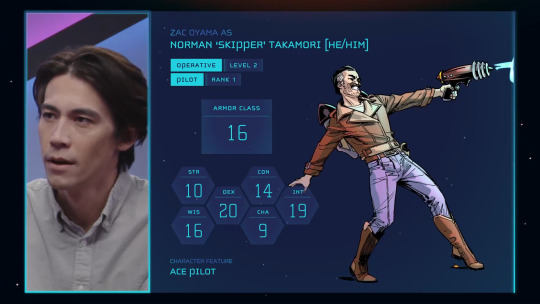
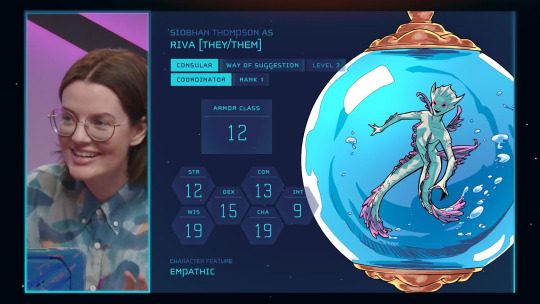
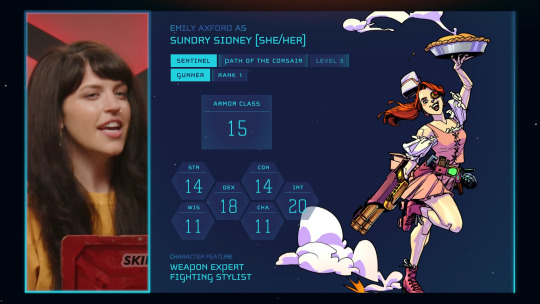
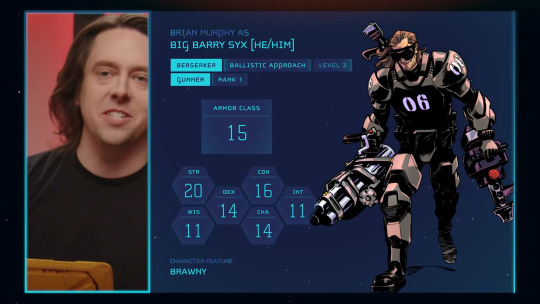
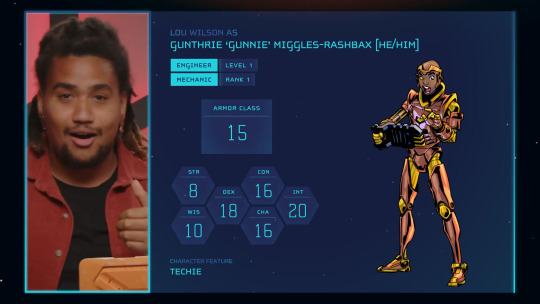
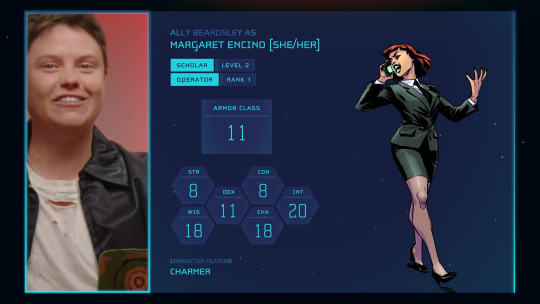
Meet the PCs of Dimension 20: A Starstruck Odyssey (premiering January 12th on Dropout.tv)
All illustrated by the incredible Amy Reeder
#dimension 20#starstruck#a starstruck odyssey#emily axford#zac oyama#brian murphy#lou wilson#siobhan thompson#ally beardsley#amy reeder
3K notes
·
View notes
Text
REVIEW: "Rock and Roll Man: The Alan Freed Story" at Berkshire Theatre Group
REVIEW: “Rock and Roll Man: The Alan Freed Story” at Berkshire Theatre Group

View On WordPress
#A.J. Davis#Alan Campbell#Alan Freed#Barbara Waldinger#Berkshire Theatre Group#Bob Ari#Brian Mathis#Brian Reeder#BTG#Christopher Ash#Colonial Theatre#Dave Keyes#Early Clover#Gary Kupper#George Wendt#Hayden Hoffman#J. Jared Janas#James Scheider#Janet Dickinson#Jared Zirilli#Jerome Jackson#John Dewey#Kate Maguire#Kevan Loney#Larry Marshak#Leon Dobkowski#Matthew Richards#Matthew S. Morgan#Nathan Leigh#Pamela Edington
0 notes
Note
WHO is that purple-dressed goddess you were posting last night? Gemworld? Please tell me more, if you want to 👀
Okay, so this gives me the opportunity to talk about one of the most underappreciated and under-utilized pieces of the DC Universe, so I'm glad you asked! Tl;dr "Think of the premise of Gemworld as basically 'Narnia meets Harry Potter meets She-Ra: Princesses of Power' and you've probably got it."
This is Amy Winston, otherwise known as Princess Amethyst (and technically 'Amaya'):
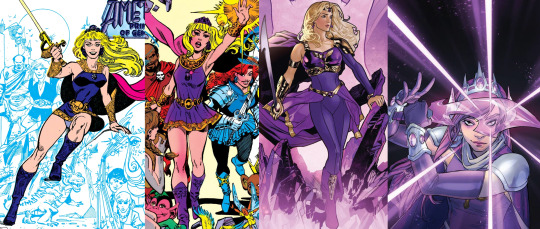
Basically? She's DC's resident portal fantasy magical girl.
Originally: She was born Amethyst, the princess to the 'House of Amethyst' in the mystical alternate dimension called Gemworld. As an infant, Amethyst's parents (Lord and Lady Amethyst) were the most powerful magic users in Gemworld before they were both murdered by Dark Opal during a coup. Amethyst was rescued by a witch and sent to Earth, where she was adopted and raised by the Winstons as a normal Earth girl until her thirteenth birthday, when she's given a magical amethyst necklace and then promptly kidnapped and taken back to Gemworld. She's rescued by the same witch that saved her when she was a baby, Citrina, who then explains that she's....effectively the heir to the throne of Gemworld (or rather, the House of Amethyst, who nominally rules over the other Houses).
Because Gemworld is basically a pocket universe, time flows differently between the worlds, so when Amy wakes up there she's suddenly a 20 year old warrior princess (and any time she's there, she's ~7 years older than she is on Earth). She starts to live a dual life, part-time on Earth as Amy Winston and part-time on Gemworld as Princess Amethyst, future ruler of Gemworld. Traditionally, she's also a Lord of Order like Doctor Fate (Dark Opal is a Lord of Chaos), but this kinda got wiped out by the New 52 so no one's really sure what the status of that whole aspect of her character is rn.
Post-Flashpoint: Her whole history got wiped and replaced. The basic concept and premise remained the same, but they basically replaced Amy's backstory and personality wholesale. On Amy's 17th birthday, her mother tells her she's really Princess Amaya, heir to the throne of House Amethyst, and takes her to Gemworld. Her mom, Queen Graciel, was raising her secretly on Earth until she would be old and strong enough to reclaim the throne of Gemworld from her evil aunt, Lady Mordiel. This Amethyst shares a lot of page time with Justice League Dark and has several adventures with them after her own title, Sword of Sorcery, ended.
I sort of take the opinion that both 80s!Amethyst and 2011!Amethyst are good...they're just very different from each other. Sword of Sorcery did a lot of really fun stuff with Gemworld and I'm pretty fond of it even though it sort of looked the two 80s Amethyst solos in the face and went 'I'm picking and choosing from you and then doing my own thing.'
Anyway, when Brian Michael Bendis relaunched Young Justice in 2019, he and Amy Reeder (who wrote an Amethyst miniseries) reimagined her and Gemworld again: she's dyed her hair purple, is a little younger now (I think she's 16?), and now there's no time difference between Earth and Gemworld, so she doesn't "transform" into Amethyst every time she crosses over to Gemworld anymore; she's just herself, Amy (or rather Princess Amaya, her post-2011 birth name). They also reworked quite a bit of Gemworld lore...some of those changes were good, and Reeder obviously tried to restore some of the 80s lore/backstory, some where thoroughly 'meh' (they made her winged unicorn a pegasus...rip to the alicorn/pegacorn, you're missed!), and some were...not great (@Bendis: wtf is "gem-based science"??? let her be a magical girl you coward!).
To date, the only Gemworld adaptation is the Amethyst, Princess of Gemworld shorts from 2013; they were pretty fun, even if they had a different premise (Gemworld is a video game Amy's transported into instead of a seperate universe)!
Anyway she's a magic-using secret princess with a sword and a pegasus and her entire world is based on a combination of Gemstone lore and the medieval-esque sword & sorcery-type fantasy, what's not to love? She and Gemworld deserve another ongoing and a big-budget HBO Max series. It could be so good, and DC could make a fortune with it.
#amethyst of gemworld#amy winston#gemworld#dc comics#asks#brian michael bendis#amy reeder#young justice#yj 2019
241 notes
·
View notes
Photo


Brian Reeder's Eventually (Colorado Ballet, 2010)
10 notes
·
View notes
Photo
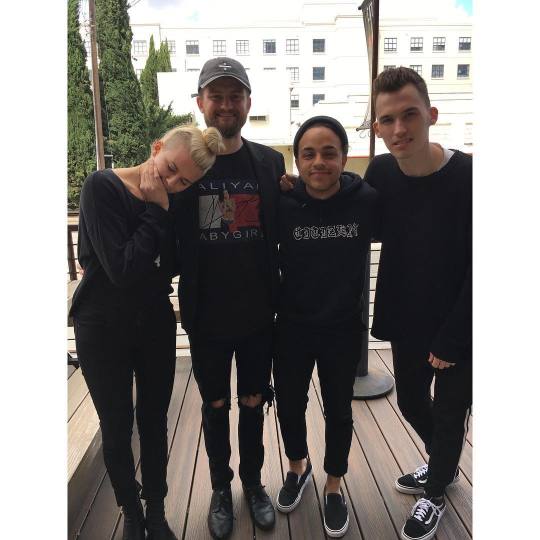
Anthony Reeder on Instagram: “I love these people so much ❤️ #madguud”
April 13th, 2017
23 notes
·
View notes
Note
Are there any books that you recommend for learning about chickens?
My interests are in chicken genetics so all the books I have pertain to that so I have Sigrid Van Dort's color genetics book and chicken extremes. These are a bit expensive but they are well worth it.
Brian Reeder's "An Introduction to Color Forms of the Domestic Fowl" is a really good book for when you just learning colors and is a good reference on how to break down colors into their individual genes. My only gripe is that there is no pictures, if it had pictures in color for reference like Sigrid's book it would be the perfect introduction into chicken genetics in my opinion.
I also have a cute little book I got as a gift call "Wisdom for hen keepers" and it goes over the bare bones basics of chicken keeping in a casual way. You would learn more by talking to people but it's a nice little book to keep around with easily digested advice.
20 notes
·
View notes
Video
youtube
BILL CALLAHAN & BONNIE PRINCE BILLY - "OD'd in Denver” (feat. Matt Sweeney), Hank Williams, Jr cover out now via Drag City
Video by Todd Rohal, Laura Wolford, Brian Sowell, Calvin Lee Reeder, Nick Smith, and Charlie Dijker
#bill callahan#bonnie prince billy#matt sweeney#hank williams jr#music video#new music#cover#drag city#2020#todd rohal#laura wolford#brian sowell#calvin lee reeder#nick smith#charlie dijker#folk#walking#night
1 note
·
View note
Photo
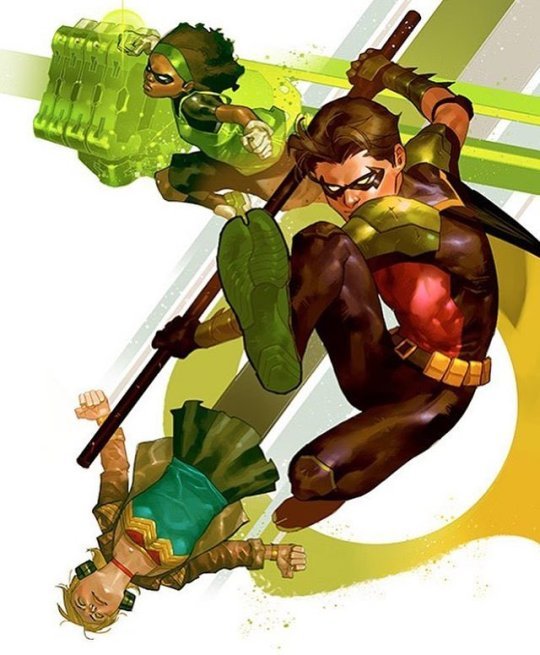
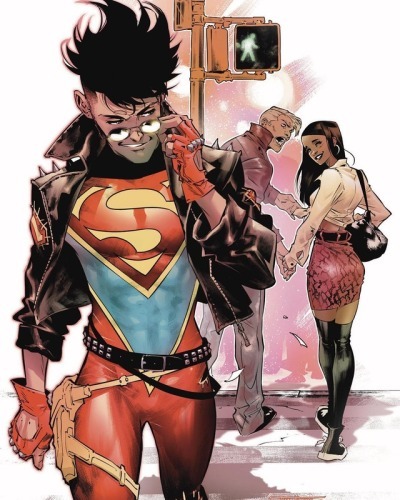



Every single Variant cover (so far) for the new Young Justice comic relaunch coming via Wonder Comics and set to be released in January! Don’t forget to pre-order!
All of the variant covers released so far for the upcoming Young Justice relaunch coming via the Wonder Comics imprint beginning in January!
Robin (Tim Drake) cover art by: Yasmine Putri
Superboy (Conner Kent) variant cover art by: Jorge Jiménez
Impulse (Bart Allen) variant cover art by: Derrick Chew
Wonder Girl (Cassandra Sandsmark) variant cover art by: Doc Shaner
Amethyst variant cover art by: Amy Reeder
#Tim Drake#Robin#Conner Kent#Kon-El#Superboy#Bart Allen#Impulse#Cassandra Sandsmark#Cassie Sandsmark#Wonder Girl#Amethyst#Teen Lantern#Wonder Comics#Young Justice#Yasmine Putri#Jorge Jimenez#Derrick Chew#Doc Shaner#Amy Reeder#Brian Michael Bendis
309 notes
·
View notes
Text
highlights from the starstruck odyssey faq doc (found here):
18 EPISODES!!!!
star wars 5e system!!
2 part interview w brennan and his mom coming out dec 29 and jan 5 🥺
siobhan playing a they/them character !!!!!!!!!!!
in-dome pre-recorded adventuring parties
season illustrator is amy reeder who i do not know but by the looks of their instagram they are a comic book artist !!!!!!!
premiering january 12th babey
everyone’s characters:
Emily Axford (She / Her) as Sundry Sidney (She / Her)
Ally Beardsley (They / Them) as Margaret Encino (She / Her)
Brian Murphy (He / Him) as Big Barry Syx (He / Him)
Zac Oyama (He / Him) as Norman “The Skipper” Takamori (He / Him)
Siobhan Thompson (She / Her) as Riva (They / Them)
Lou Wilson (He / Him) as Gunthrie “Gunnie” Miggles-Rashbax (He / Him)
574 notes
·
View notes